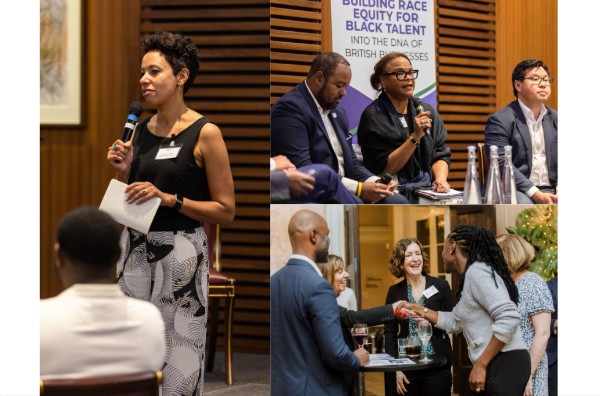
Black graduates are twice as likely to be rejected for top jobs
Research commissioned by the Black Talent Charter in collaboration with Bain & Company, has found that black graduates from UK universities continue to face racial discrimination during job applications within the financial services, professional services, and law. This is despite many organisations committing to challenging racism within their organisations in 2020 and working to improve the pipeline to increase their representation of black talent.
The research disproves the myth that black talent is hard to find and not eager to apply for roles. In fact, the research has found that, on average, black candidates are twice as likely as any other racial/ethnic group to seek careers within the financial and professional sectors. Despite comprising 8% of the UK university population and 4% at the top 20 universities (compared to 4% of the working age population), black graduates are disproportionately rejected during application processes, being two times less likely than their peers to secure a job role in the targeted industries, and therefore subsequently hold only 2% of roles within the highest remunerated sectors of the UK economy.
Despite 34% of black students surveyed identifying themselves as likely to apply for financial services role versus 16% of their white peers, as black candidates progress through the recruitment process, they are half as likely to be successful in securing a job offer that their white peers.
Socio economic barriers and racial bias can form additional challenges disadvantaging black candidates. One person interviewed highlighted the cost of assessment days and clothing as potentially problematic - ‘I had a weekend and evening job which helped to pay for travel and interview outfits. For some roles, travel is eventually reimbursed, but I can see how it’s a barrier for some people.’ Another said that they ‘got an understanding of ‘what it takes’ too late’ when reflecting on the pathways required to access these careers such as competitive summer internships.
Verbal skills and poor commercial judgement were cited as reasons black candidates dropped out of interview processes, with companies describing a lack of ‘polish’ that allows candidates to operate within professional corporate social codes. In turn, this view may favour specific accents, mannerisms and conversational skills.
Laura Durrant, CEO of the Black Talent Charter, said: “Our research suggests that the adage is true; black talent works twice as hard to get half as far. There’s strong representation at universities, studying the right courses, engaging with career opportunities, and applying in high numbers compared to peers, and yet we are still seeing black graduates falling away through the process.”
“Organisations must take a renewed look at the barriers that continue to exist in the recruitment process. But this will also require a change in mindsets regarding how potential is assessed, rather than attributing the issue to the talent not being available. There is clearly an opportunity here to diversify graduate pipelines with talented individuals of black heritage.”
Read the full research here.
Written by





